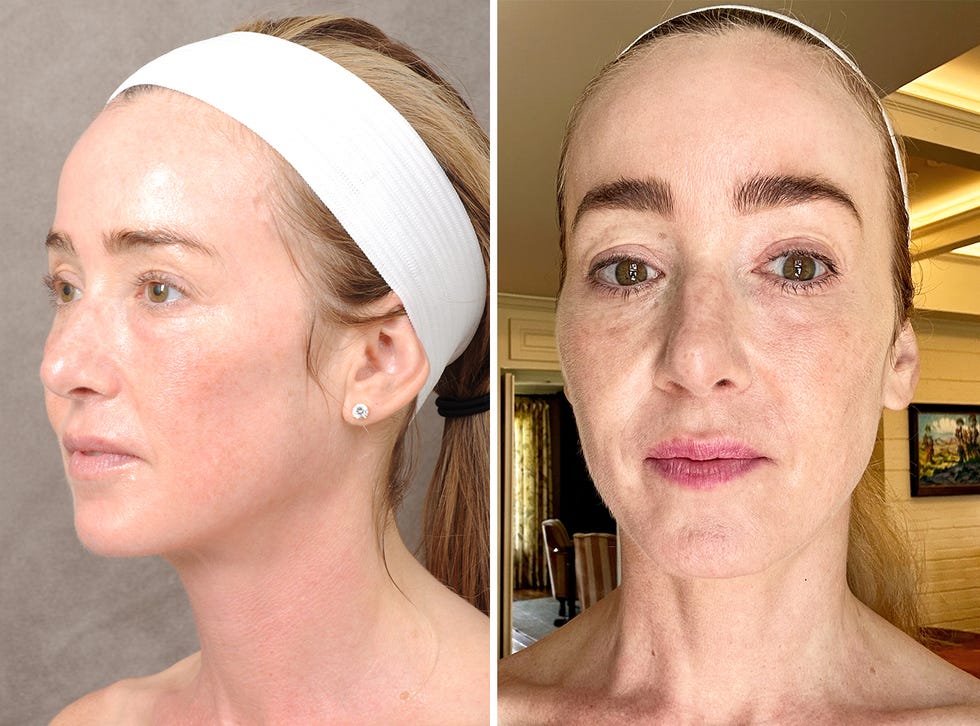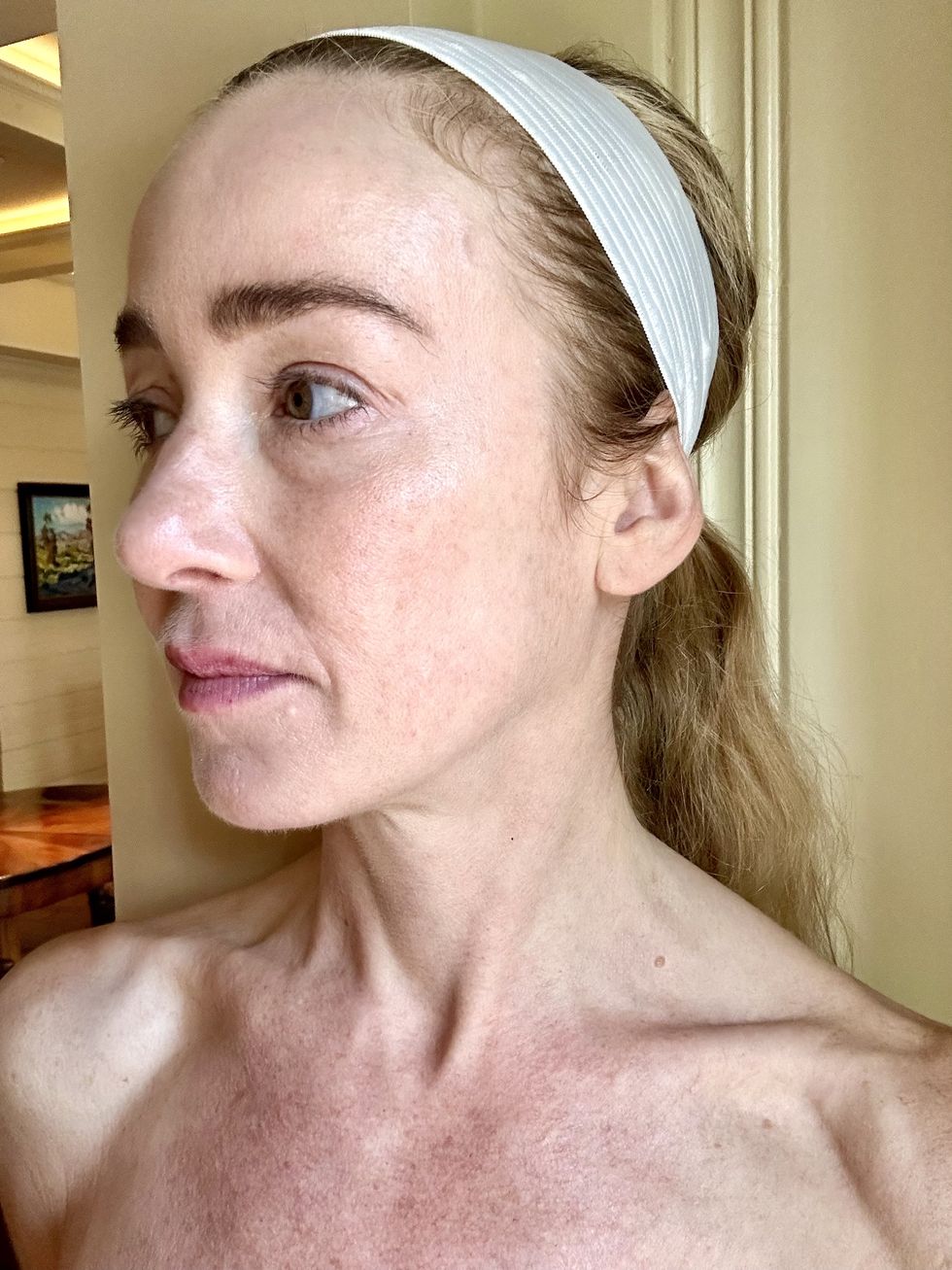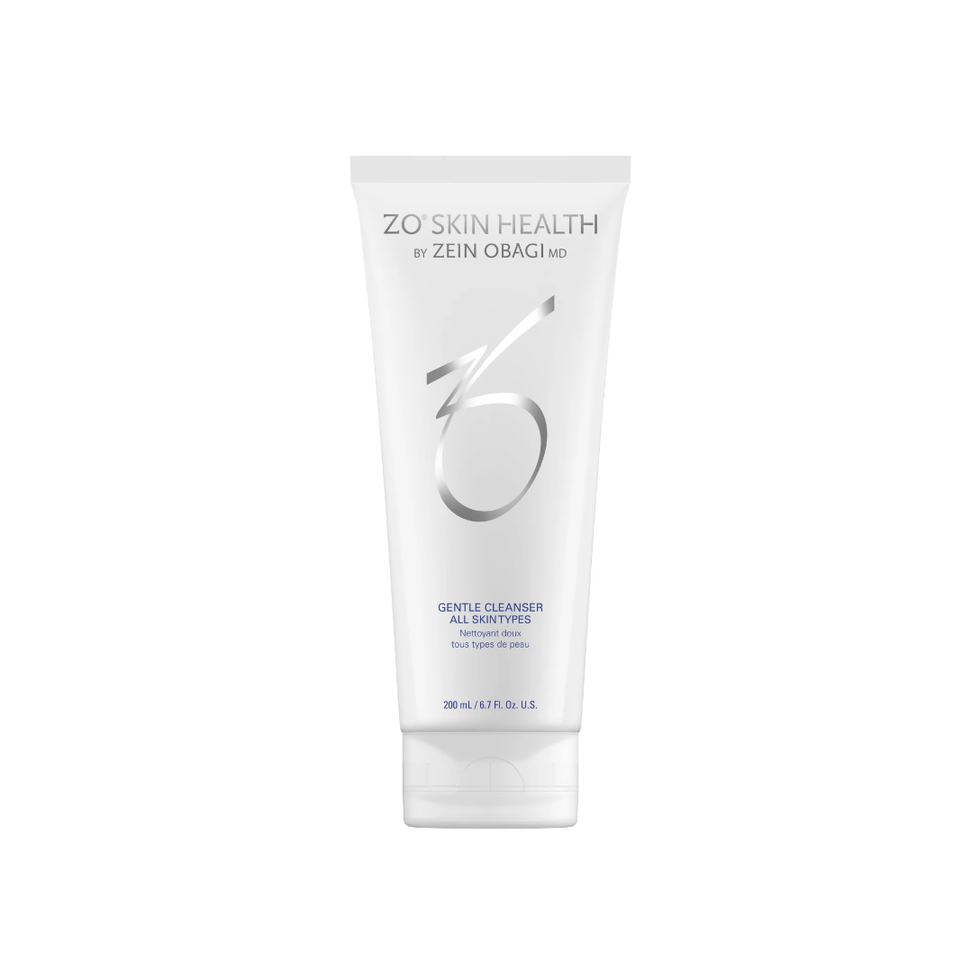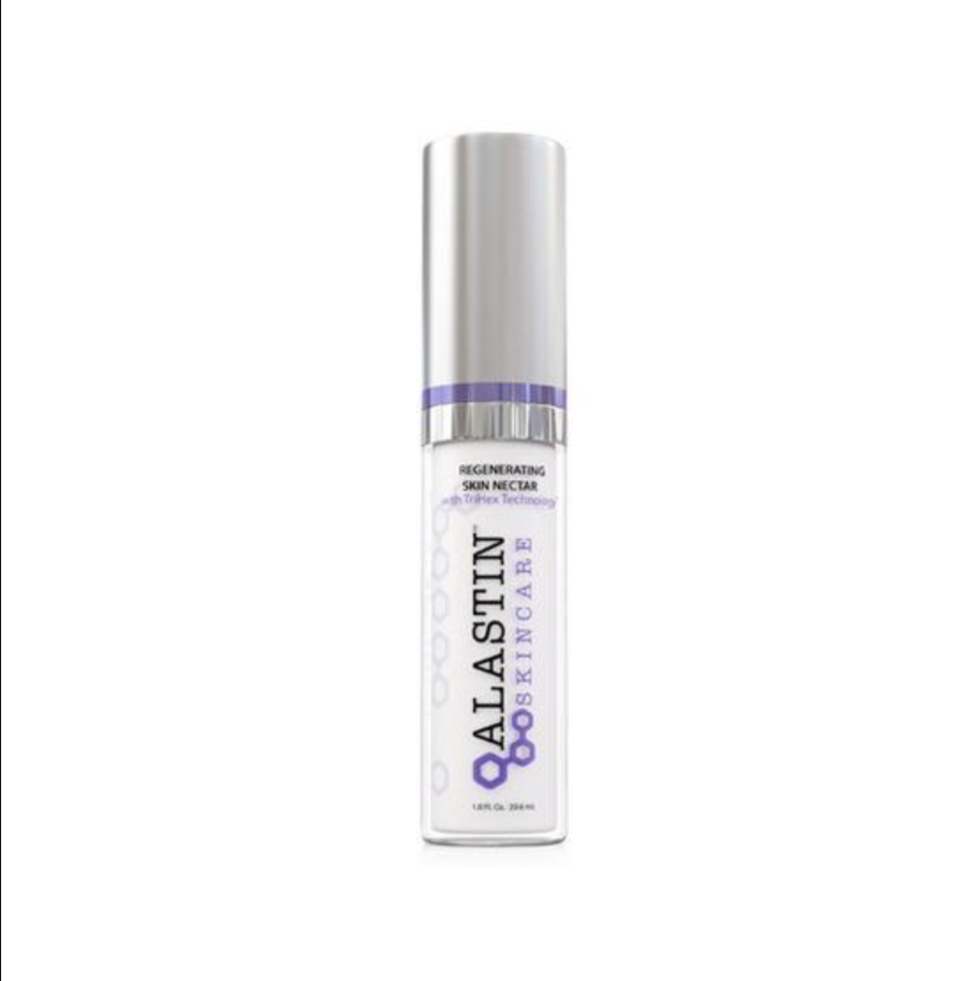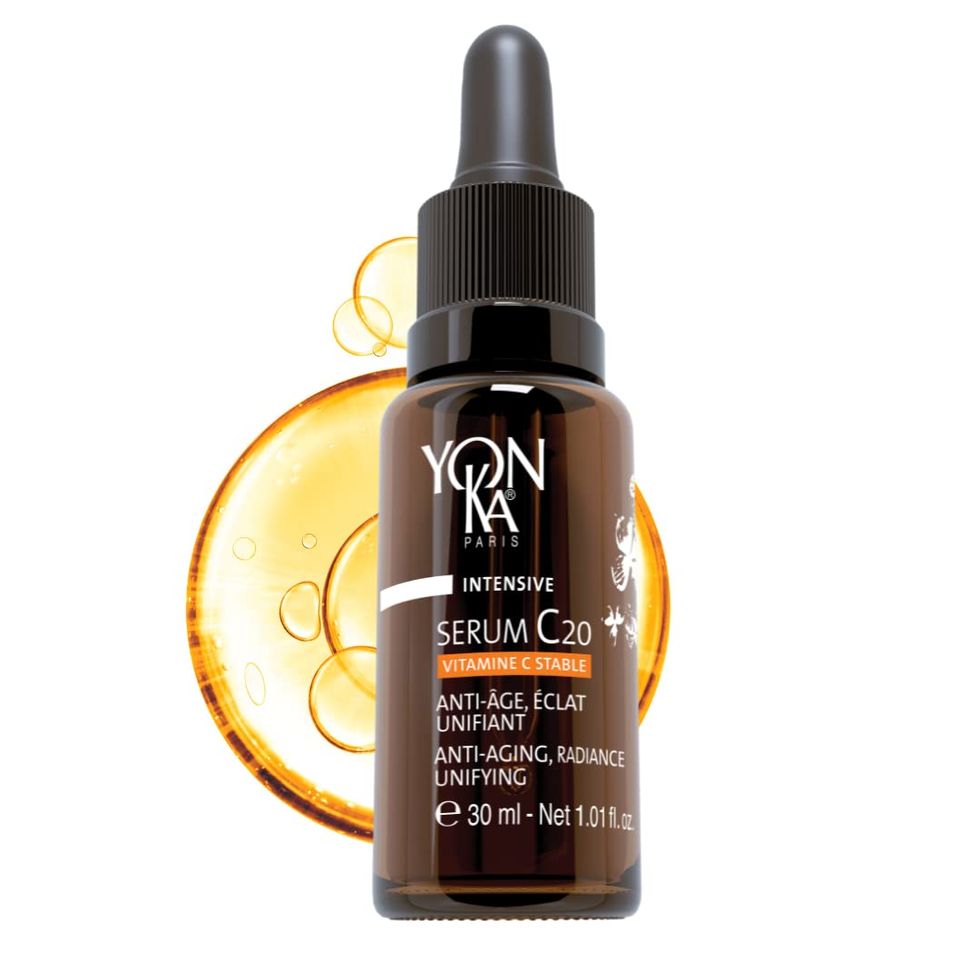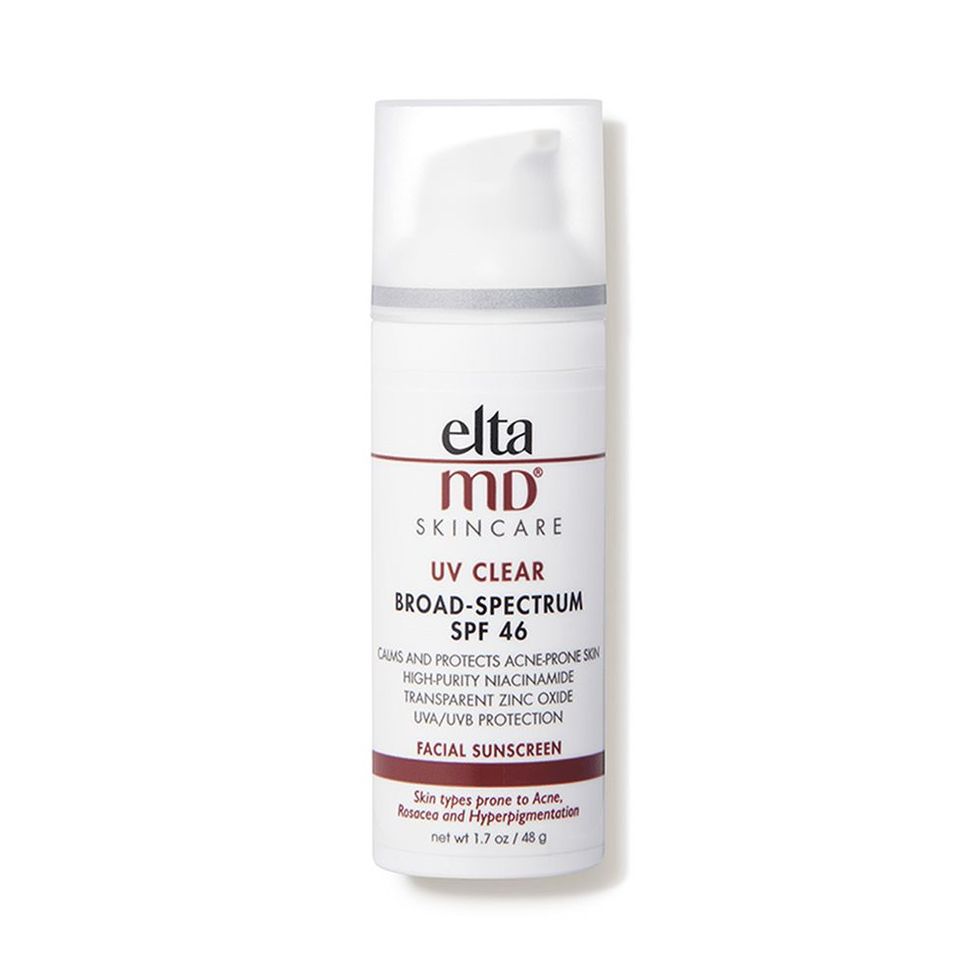Matrix Is the Skin Tightening Treatment That Turns Back the Clock
I can’t scroll for more than five seconds without being served up ads for the miraculousMorpheus8, microneedling’s big sister that celebs like Kim K, Jessica Simpson, and Lindsay Lohan swore by in 2022. Turns out there’s a new treatment in town that claims to give Morpheus8 a run for its money. EnterMatrix: The latest radiofrequency (RF) device predicted to become the “it” treatment of the year.
According to a double board-certified plastic surgeon, Dr. Ben Talei, Matrix is unlike anything out there. “It’s not like Profound; it’s not like Fractura, and it’s not like Morpheus8. I think it will be the best skin tightening treatment device of all time.” As a beauty writer whose forty-something-year-old skin sings a sad song of stress and sleepless nights, I’m a connoisseur of all the treatments. Still, even with all the botox, filler, laser peels, Fraxel, and microdermabrasion I’ve had, I was a newbie to RF microneedling like the Matrix, so there was a bit of a learning curve.
Naturally, I had reservations and wasn’t about to take the doctor’s word for it. You see, my sister had four sessions of Morpheus8, and while it tightened her skin and improved texture, it also altered her signature square jaw and completely changed her face shape–which was not what she had in mind. Therefore, I take Matrix’s claims seriously. If they hold true, they could boost one’s self-confidence. However, if they fall short, it’s my face at stake, so it’s a big deal. Armed with cautious optimism in one hand and Dr. Talei’s unwavering confidence in the other, I boldly stepped into the Matrix, eager to explore the buzz surrounding it.
More From ELLE

What is microneedling?
There are three main types of microneedling: Electric, manual, and RF. Electric, handheld devices move across the skin with needles going in and out like a ballpoint pen; manual devices require pushing the needles up to 2.5 millimeters deep, like a stamp. Lastly, the RF variety of microneedling employs tiny needles to penetrate the skin at varying depths to deliver RF energy waves that induce micro-injuries. And why, might you ask, would anyone willingly subject their skin to purposeful injury? The magic of microneedling lies in the remarkable aftereffects, as these micro-injuries stimulate the body’s response to produce more collagen, resulting in smoother skin with a dewy glow. Sign me up!
What is Matrix, and what are the benefits?
Matrix Pro is the newest addition to the fifth-generation RF microneedling devices, designed to regenerate and build new collagen. The maker of Matrix,Candela, patented their needleless applicators that deliver energy to the skin, transforming overall skin appearance and texture. The way it works is a bit complicated, so I contacted Dr. Konika Schallen, Medical Director of Candela, to explain.
“The Sublime applicator uses infrared and RF energy to bulk heat the skin, stimulating collagen production, making the skin tight and smooth,” Dr. Schallen explained, while “the Sublative applicator fractionates bi-polar RF energy, which provides resurfacing of the skin and while still minimally invasive, contributes to the treatment’s minimal downtime.” Schallen noted that the downtime is “still less than other resurfacing treatments.” All this technical jargon really means Matrix promises to make your face taut and smooth while reducing fine lines, pore size, and wrinkles, and boosting radiance.
How does Matrix feel?
In terms of spiciness, the Matrix was a medium salsa. Dr. Talei applied lidocaine numbing cream was applied for 45 minutes, then it wiped off before administering the Matrix’s warm, prickly sensations as the RF energy entered my skin. It certainly wasn’t massage-like, but I’ve endured worse pain in the name of beauty (two words: lip threading). For my second treatment, we didn’t have as much time to numb, so he shot me up with a blissful dental block around my mouth and nose. I couldn’t sip smoothies or anything or at least four hours after, but I preferred that “numb to the world style” over the usual topical numbing cream.
I had Matrix done on my face, neck, and chest, and the session took about 45 minutes. Considering the 30 to 45 minutes for numbing, the procedure is about an hour and a half when all’s said and done. A “face only” session would likely be shorter.
How long do results last?
Matrix is the gift that keeps on giving. “Patients usually start to see results a month after treatment, which last at least 12 months or longer,” Talei explains, “but we repeat one to two times each year to maintain maximum results.”
Just three days post-treatment, I immediately looked better. However, one month after my first treatment, I noticed that my skin texture seemed more bouncy, my pores definitely looked smaller, and my skin appeared plumper and radiant, like I was glowing from the inside after a sweaty, hot yoga sesh.
What about downtime?
In our always-on world, downtime is always a concern, which is whynon-invasive treatments have soared in the last two years. Unlike other resurfacing treatments, like microdermabrasion or lasers likeFraxel, RF microneedling does not require days of discomfort or significant lifestyle changes during recovery. Matrix touts minimal downtime, but I still canceled any fancy plans for two days post-treatment, just in case. I only needed a good 24 hours out of sight. I’m in LA, where my sunburned sheen would have been just fine. Talei said it’s normal to experience a bright red flush after treatment, but promised it fades within hours. I had little red crusty stamp marks on my neck and chest that lingered for three days but were barely noticeable. Even though it was a non-invasive treatment, I felt emotionally exhausted afterward. I honored the fact that my face experienced trauma and chose to take it slow and easy.
What does aftercare look like?
I received a post-treatment goodie bag, and Dr. Talei advised me to leave my face alone for 24 hours. The instructions were simple: wash with a gentle cleanser, apply a gentle serum like vitamin C, and coat my healing dermis with a soothing moisturizer. For the first treatment, I only used the kit’s products: ZO Gentle Cleanser,Alastin Regenerating Skin Nectar,DermAvance Arnika Forte,Argentyn Silver First Aid Gel, and Elta SPF. However, the second time around, I used my gentle regime, includingFresh’s Soy Hydrating Gentle Face Cleanser,Yon-Ka Serum C20, andOdacite’s Le Blue Balm, which, in my opinion, is a panacea for soothing or hydrating any part of your body. Other important rules? Avoid abrasive skin cleansers or exfoliators, saunas for 24 hours, and, most seriously, sun exposure. The last thing your vulnerable skin needs is UV rays, so invest in a big ass hat and lather up often with sunscreen.
Are there any cons of Matrix?
If you can get past a bit of pain and redness, the only downside is the price. Matrix can range from $1,500 to $2,000 per session, which is quite steep. And one treatment usually won’t do the trick. For optimal, lasting results, experts suggest two to five sessions at least four weeks apart. Many med spas or cosmetic dermatologists sell packages of three at a slight discount. Depending on your age, skin type (akaFitzpatrick type), and how much damage you need to reverse, your provider will determine what is right for you. Dr. Talei suggested three sessions for me, but I opted for two to time this story with Matrix’s rollout, and I can always go back for more when the time is right.
What’s really important to note, and most providers I’ve come across fail to mention, is that RF microneedling treatments are kryptonite to injectable fillers like Restalyne, Juvaderm, or Sculptra. The worst case is the heat of the RF could manipulate the chemical makeup of the filler, which could alter the appearance of your face—and not in a good way.
“If you’re going to use filler to volumize someone’s face, absolutely do the radiofrequency first, let it do its thing for three to four weeks, and then get filler afterward,” Talei explained emphatically.
If you’re like me and value beauty but are on a budget, the takeaway is skin first, then injectables. If you get all your RF tightening done upfront, you’ll do less filler and reduce the chance of that filler dissolving, saving you money all the way around. Even if you have the most perfectly placed, natural-looking filler of your dreams, you won’t be happy unless your skin is shining, so heed my advice.
Is Matrix worth it?
Pardon the drama, but Matrix is 1000 percent worth it. If you’re looking to reverse or get a jump start on delaying the signs of aging, you can do no wrong with Matrix. Out of habit, I’ve gravitated towards Botox or filler first to give me that refreshed, well-rested look. After two sessions of Matrix, I realized I overlooked so many non-invasive ways to preserve a youthful glow and keep my skin healthy.
So, not only has Matrix upped my skin game, but it has boosted my confidence and opened my eyes to the world of rejuvenation that exists beyond needles. In my opinion, the effect of the Matrix is more natural than injectables. While the price is steep, it’s an investment that pays real dividends in the form of new collagen production over time, smoother, younger-looking skin, and a self-assured allure. So, is it worth it? Let’s just say I’d step into the Matrix any day.
Aubree Nichols is a Los Angeles-based freelance writer whose work has appeared in The New York Times, Vogue, and LA Magazine.

